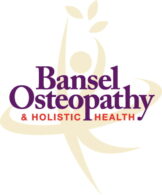Are you struggling with Hayfever?
Here is a list of the top supplements and foods to reduce your symptoms and help you enjoy the summer!
- Quercetin.
There have been numerous studies into this powerful flavonoid’s ability to inhibit the release of histamine in your body. To up the quercetin in your diet, opt for foods including berries, parsley, onions, and peppers but to ensure you get the right amounts of antihistamine amounts, it’s best to supplement. You should aim for 400mg twice a day, in between meals. - Zinc.
Zinc is an essential mineral for a good functioning immune system and is usually found to be low in those suffering from allergies. Dietary sources include pumpkin seeds, hemp seeds, lamb, poultry, chickpeas, avocados and lentils. - Vitamin C.
Vitamin C is a natural antihistamine as well as being vital vitamin for a healthy immune system. Vitamin C is present in all fruit and vegetables, but bell peppers, guava, strawberries, kiwis and citrus fruit contain the highest content. - Vitamin D.
Vitamin D has a very important role in your immune system and deficiencies have been linked to allergies. Try to spend at least 30 minutes a day in the sunshine to boost your vitamin D levels or take a supplement. - Garlic.
Garlic is also a natural histamine and can easily be added to most cooking. - Curcumin.
Curcumin is the bioactive compound in turmeric which gives it it’s health benefits. In studies, it’s anti-inflammatory effect on the body proved to reduce symptoms of sneezing and congestion. As curcumin is not easily absorbed, it is best to supplement with an active form. - Biotin.
Biotin is a B vitamin which helps maintain the healthy function of mucous membranes. To increase biotin in your diet, try consuming more fish, egg yolks, avocados, green leafy vegetables, and nuts. - Herbal teas.
Nettle, chamomile, elderflower, ginger, peppermint and anise all have antihistamine effects and can be sipped throughout the day. - Local honey.
There is controversy as to whether eating local honey is helpful, it seems to reduce symptoms in some people but not in others. Consuming local honey is meant to help by exposing your body to local pollen which allows you to build up a natural immunity to it, thereby reducing your body’s reaction to it on exposure/when you come in contact with it. - Probiotics.
Your gut is involved in the development of histamine intolerance and therefore allergies. Taking a good quality broad-spectrum probiotic is vital to ensure a healthy biome. In combination with reducing pro-inflammatory foods such as dairy, allergy symptoms can help to be mitigated. - Avoid:
• Dairy, wheat, yeast and white sugar which are very pro-inflammatory and mucus forming.
• Alcohol-especially red wine, cider and beer which are high in histamine.
• High histamine-containing foods such as fermented foods, chocolate, aubergine, apples, tomatoes, stoned fruit, celery, melon and bananas, dried fruit, tinned or smoked meat, and aged cheeses.
Should you have any questions about which supplements you should be taking or are interested in trying Applied Kinesiology for a bit more of an in-depth holistic consultation on your body’s imbalances then give the clinic a call on 01444 200575 or book online.

